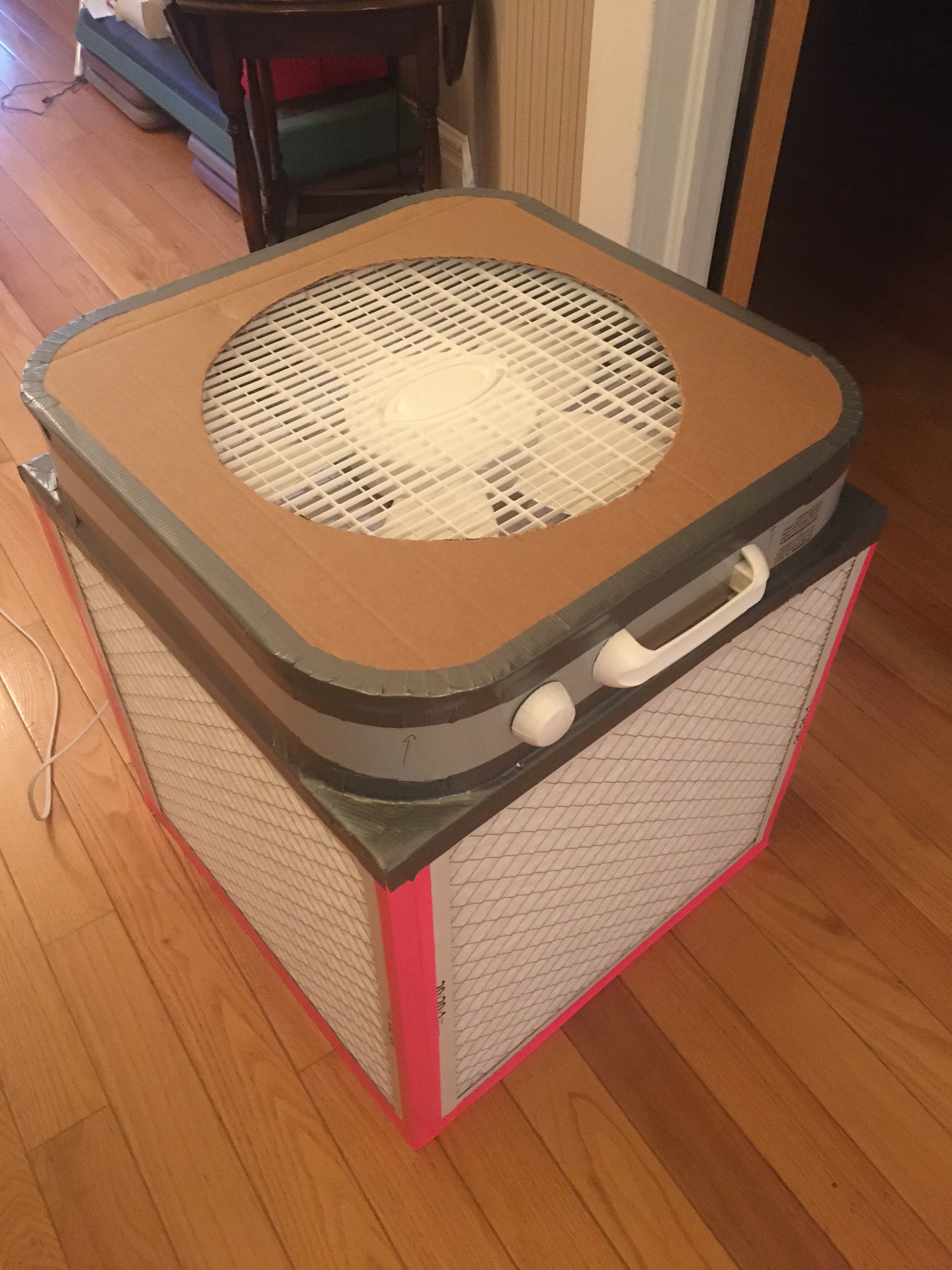DIY air filter can effectively filter out viruses, air pollutants: Study
They are not only highly effective but also scalable, Braun added.

- Country:
- United States
An simple, easy-to-construct air filter can protect against illness caused not only by viruses but also by chemical pollutants, according to a study.
The filter named Corsi-Rosenthal boxes, or cubes, can be constructed from materials found at hardware stores: four MERV-13 filters, duct tape, a 20-inch box fan and a cardboard box.
''The findings show that an inexpensive, easy-to-construct air filter can protect against illness caused not only by viruses but also by chemical pollutants,'' said study lead author Joseph Braun, an associate professor at Brown University in the US.
''This type of highly-accessible public health intervention can empower community groups to take steps to improve their air quality and therefore, their health,'' Braun said in a statement.
As part of a project, boxes were assembled by students and campus community members and installed in the School of Public Health as well as other buildings on the Brown University campus.
To assess the cubes' efficacy at removing chemicals from the air, Braun and his team compared a room's concentrations of semi-volatile organic compounds before and during the box's operation.
The results, published in the journal Environmental Science & Technology, showed that Corsi-Rosenthal boxes significantly decreased the concentrations of several PFAS and phthalates in 17 rooms during the period they were used (February to March 2022).
PFAS, a type of synthetic chemical found in a range of products including cleaners, textiles and wire insulation, decreased by 40 to 60 per cent.
Phthalates, commonly found in building materials and personal care products, were reduced by 30 to 60 per cent, the researchers found.
PFAS and phthalates have been linked to various health problems, including asthma, reduced vaccine response, decreased birth weight, altered brain development in children, altered metabolism and some cancers, said Braun.
They are also considered to be endocrine-disrupting chemicals that may mimic or interfere with the body's hormones. PFAS have been associated with reduced vaccine response in children and also may increase the severity of and susceptibility to COVID-19 in adults, according to the researchers.
''The reduction of PFAS and phthalate levels is a wonderful co-benefit to the Corsi-Rosenthal boxes,'' said study co-author Robin Dodson, a research scientist at US-based NGO Silent Spring Institute.
''These boxes are accessible, easy to make and relatively inexpensive, and they're currently being used in universities and homes across the country,'' he added.
The researchers said Corsi-Rosenthal box was designed to be a simple, cost-effective tool to promote accessible and effective air cleaning during the COVID-19 pandemic.
''The fact that the boxes are also effective at filtering out air pollutants is a fantastic discovery,'' said Richard Corsi, one of the inventors of the boxes from the University of California, Davis.
The researchers also found that the Corsi-Rosenthal boxes increase sound levels by an average of 5 decibels during the day and 10 decibels at night, which could be considered distracting in certain settings, such as classrooms.
However, Braun said, the health benefits of the box likely outweigh the audio side effects.
''The box filters do make some noise. But you can construct them quickly for about USD 100 per unit, with materials from the hardware store. They are not only highly effective but also scalable,'' Braun added.
(This story has not been edited by Devdiscourse staff and is auto-generated from a syndicated feed.)










